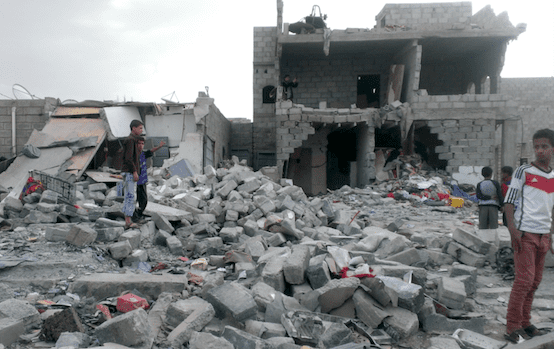The Terrible Legacy of the War on Yemen

Borzou Daragahi reports on the long-term effects of widespread malnutrition and starvation in Yemen:
“It means each child is robbed of opportunities they would have had,” said Frank McManus, Yemen director for the IRC, speaking in a phone interview from the country’s Houthi-controlled capital, Sanaa.
“Malnourishment is not something you can recover from,” he said. “It will shorten your height. It will limit your opportunities. It will impact how you will develop.
“This will also restrict the development of the nation,” he continued. “So much of the youth will be less than they could have been if they hadn’t gone through this.”
The human cost of the war on Yemen is far higher than the significant loss of hundreds of thousands of lives. Tens of millions have been made food insecure, and millions are on the brink of starvation. Millions of Yemeni children have already been stunted by the lack of food. They will be living with the effects of this war for the rest of their lives, and it will likely take the country decades to recover from these past five years of conflict. This has not been an accidental byproduct of war, but the result of policies adopted by the Saudi coalition and the Hadi government with the support of the U.S. and Britain.
Daragahi cites a new report from the International Rescue Committee (IRC) to show that the war on Yemen has achieved nothing and has worsened the security of the region:
“Far from cementing Hadi’s position, ensuring Saudi and Emirati national security, or diminishing Iranian influence, the war has empowered separatist forces, strengthened Iran’s regional influence, created new threats to Saudi and Emirati national security as well as the global energy supply, and left a void of governance filled by terrorist groups including Al Qaeda and Isis,” says the report.
Mr McManus says that while jihadi groups such as Isis and the local Al Qaeda affiliate are not as strong as they were a couple years ago, they continue to retain a foothold in the country.
“The war has not reduced the influence of the jihadis,” he said. “It is giving them space to grow, making them more important in national dynamics.”
Military intervention usually makes the conditions in the affected country worse, and the war on Yemen has done just that. The Saudi coalition intervened in a country that was already poor and had some food insecurity and drove it into the abyss. They did this ostensibly to “stabilize” the country, but the country is now more fragmented and unstable than ever. The coalition claimed to be combating Iranian influence, which was minimal at the beginning of the intervention, and they have succeeded in increasing that influence. The Saudis and their allies hoped to reimpose a puppet ruler on Yemen, and now they have made themselves enemies of most Yemenis for generations to come. There is now widespread malnutrition and starvation, raging epidemics of normally preventable diseases, and millions of people forced from their homes. Every problem in Yemen has been made worse by this intervention, and none has been solved. The war on Yemen is a perfect example of how military intervention makes everything worse, and we need to remember that for the next time that warmongers promise some quick, cheap, and easy war.
Our government’s indulgence of and support for this war has helped to create the world’s worst humanitarian crisis, wrecked an entire country, and devastated a generation of Yemenis. The U.S. must halt its support for the war, and it is also incumbent on our government to aid in Yemen’s recovery from the disaster that Washington helped to create.
Comments